1. Harriet Tubman
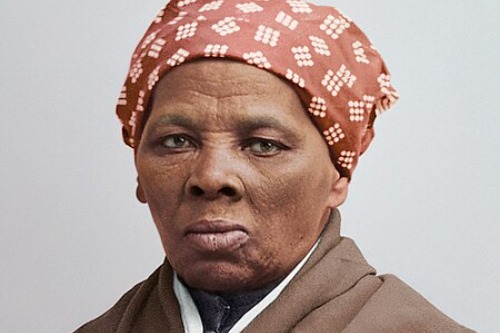
Harriet Tubman is widely recognized for her heroic efforts in leading enslaved people to freedom via the Underground Railroad. However, her legacy extends far beyond that. Tubman risked her life multiple times, traveling back and forth between the North and the South, helping others escape to freedom. Her work was not just about providing a path to freedom but also about inspiring others to fight against the institution of slavery. As a conductor, she exhibited remarkable strategic intelligence, often evading slave hunters and helping groups of escapees move through dangerous territories. Tubman’s efforts saved countless lives, but her bravery was also matched by her resilience. Even after securing freedom for herself, she returned time and time again to rescue others, embodying a deep sense of duty to her fellow human beings.
In addition to her work on the Underground Railroad, Harriet Tubman was a nurse and a spy for the Union Army during the Civil War. Her resourcefulness and courage extended into these roles as she helped treat wounded soldiers and gathered intelligence on Confederate positions. Tubman’s commitment to justice and equality did not end after the Civil War; she continued to work for women’s suffrage and racial equality throughout her life. A holiday dedicated to Harriet Tubman would celebrate her unwavering dedication to the fight for freedom and justice, highlighting her impact on American history. Her legacy of resilience and determination continues to inspire activists around the world.
2. Claudette Colvin
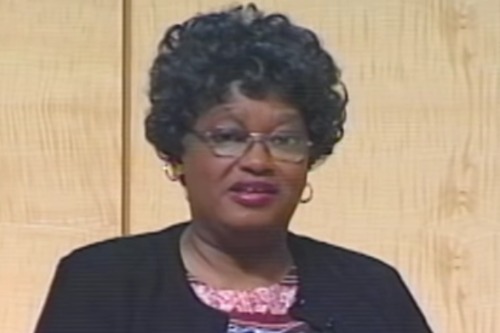
Long before Rosa Parks became the iconic figure in the Civil Rights Movement for refusing to give up her seat on a segregated bus, Claudette Colvin did the same. On March 2, 1955, 15-year-old Colvin was arrested for defying bus segregation laws in Montgomery, Alabama, making her one of the first people to take a stand against such injustice. Despite the significance of her act of courage, Colvin’s role in history was largely overlooked at the time. While Parks’ refusal to give up her seat became a turning point in the Civil Rights Movement, Colvin’s act of defiance was overshadowed due to her age, as well as societal pressures at the time. In addition to her courage, Colvin demonstrated a deep understanding of the importance of her actions, even at such a young age, recognizing that they were part of a larger movement for equality.
In the years following her arrest, Colvin continued to face challenges, including pressure from community leaders to downplay her role in the struggle. It wasn’t until decades later that she gained recognition for her early activism. Her story is a powerful reminder that many unsung heroes played crucial roles in the Civil Rights Movement, and Claudette Colvin’s actions should be celebrated. A holiday in her honor would ensure that this young woman’s pioneering stance against segregation is never forgotten and that future generations understand her contributions to the fight for racial equality.
3. Dr. Mary Edwards Walker
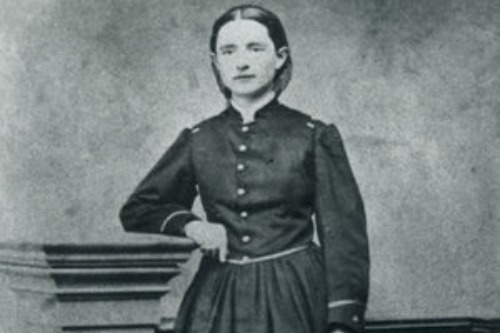
Dr. Mary Edwards Walker’s achievements are remarkable in many ways. She was the first and only woman to ever receive the Medal of Honor, a recognition for her service as a surgeon during the Civil War. Walker broke gender norms by becoming a doctor in an era when women were often discouraged from pursuing careers in medicine. Her courage and resilience were evident not only in her professional endeavors but also in her personal life. She was a tireless advocate for women’s rights, including wearing pants in defiance of gender norms and pushing for more opportunities for women in the workforce. Despite facing prejudice, including being imprisoned by the Confederate Army for her actions, Walker never wavered in her commitment to helping others and serving her country.
Beyond her service in the Civil War, Dr. Walker was an outspoken advocate for social change throughout her life. She fought for the abolition of slavery and was an early supporter of women’s suffrage. Despite her groundbreaking achievements, she was often overlooked in discussions of American history. A national holiday recognizing her contributions would not only honor her as a trailblazer in medicine and civil rights but also acknowledge her advocacy for gender equality and social justice. Dr. Mary Edwards Walker’s life exemplified dedication to helping others, challenging societal expectations, and pushing for a more equitable world.
4. A. Philip Randolph
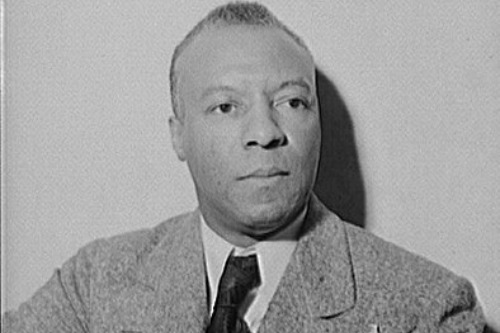
A. Philip Randolph was a leading figure in the fight for labor rights and racial equality. As the leader of the Brotherhood of Sleeping Car Porters, he became the first African American to successfully organize a labor union. His work was instrumental in improving working conditions for African American workers, who had long been marginalized in the workforce. Randolph’s tireless efforts in advocating for fair wages, better working conditions, and dignity for workers laid the foundation for the broader labor movement in America. He also played a key role in the March on Washington in 1963, which brought together thousands of people to demand racial justice and economic equality. Randolph’s ability to unite people from various walks of life for a common cause exemplified his leadership skills and commitment to justice.
Randolph’s contributions to the Civil Rights Movement and the labor movement cannot be overstated. He believed that racial equality and economic justice were intertwined, and his advocacy for both issues helped pave the way for major legislative changes, including the Civil Rights Act of 1964. Despite his profound impact, Randolph’s legacy is often overshadowed by other figures of the Civil Rights Movement. A holiday dedicated to his memory would not only honor his achievements as a labor leader but also recognize the broader impact of his work on American society, particularly in the fight for racial and economic justice.
5. Bessie Coleman
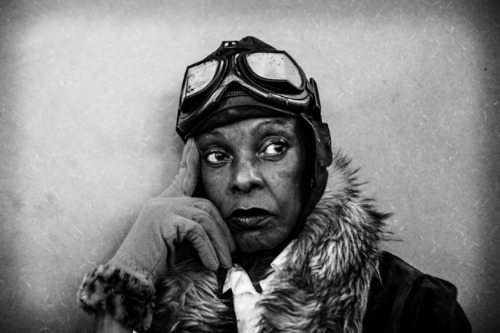
Bessie Coleman was a pioneering aviator who defied both racial and gender barriers in the early days of flight. As the first African American woman to earn a pilot’s license, Coleman faced numerous obstacles, from being denied entry into American flight schools to enduring racial and gender prejudice. Undeterred, she traveled to France to pursue her dream of becoming a pilot, where she earned her license in 1921. Upon returning to the United States, Coleman became a popular figure in air shows, thrilling audiences with her daring stunts. Despite the challenges she faced, Bessie Coleman never gave up on her passion for aviation, and she inspired countless African American women to pursue careers in fields where they had long been excluded.
Bessie Coleman’s impact on aviation went beyond her personal achievements. She was a trailblazer for African American women in a time when opportunities for them in any professional field were scarce. By pushing the boundaries of what was possible for women of color, she paved the way for future generations of pilots, engineers, and scientists. A national holiday dedicated to her would not only celebrate her groundbreaking accomplishments in aviation but also honor her role as a symbol of perseverance and empowerment for women and people of color in every field.
6. Fred Korematsu
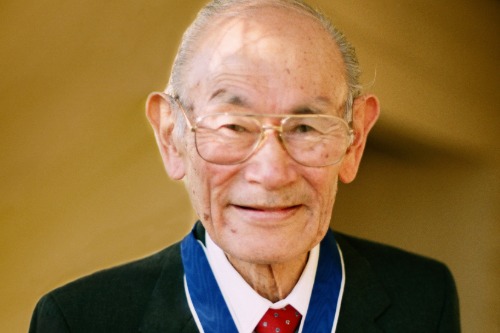
Fred Korematsu’s name is inextricably linked to one of the darkest chapters in American history: the internment of Japanese Americans during World War II. In 1942, the U.S. government ordered the forced relocation of over 100,000 Japanese Americans to internment camps, claiming national security concerns. Fred Korematsu refused to comply with this order, going into hiding to resist the internment. His courageous act led to his arrest and the eventual legal battle that brought the issue of Japanese American internment to national attention. Though the Supreme Court initially upheld the internment orders, Korematsu’s legal challenge paved the way for future civil rights efforts, highlighting the dangers of racial discrimination in times of national crisis.
Korematsu’s case was later reopened, and in 1983, his conviction was overturned, acknowledging the injustice he had endured. Despite this, Korematsu’s legacy remains largely unknown to many. His refusal to accept unjust treatment and his fight for civil liberties in the face of racial prejudice is a testament to the power of individual resistance. A national holiday dedicated to Fred Korematsu would honor his bravery in the face of oppression and serve as a reminder of the importance of standing up for human rights, especially in times of fear and uncertainty.
7. Ella Baker
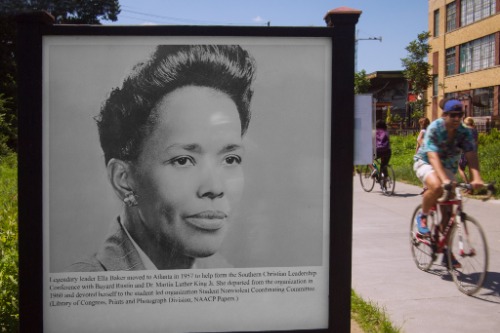
Ella Baker’s contributions to the Civil Rights Movement were foundational, yet she often worked behind the scenes, away from the spotlight. As a key leader in organizations like the Southern Christian Leadership Conference (SCLC) and the Student Nonviolent Coordinating Committee (SNCC), Baker helped shape the direction of the movement, advocating for grassroots organizing and empowering young activists. She believed that leadership should come from the people, not just from the top, and she worked tirelessly to ensure that the voices of ordinary people were heard in the fight for racial justice. Baker’s vision of leadership emphasized collective action and self-determination, values that continue to influence social movements today.
Baker’s influence extended beyond her work in the Civil Rights Movement. She was a fierce advocate for women’s rights and believed that the fight for racial equality should include a commitment to gender equality. Her focus on community-driven organizing helped shape the trajectory of the Civil Rights Movement, ensuring that it was not only about securing legal rights but also about empowering marginalized communities to take charge of their own destinies. A national holiday in her honor would highlight her invaluable contributions to social justice and ensure that her philosophy of collective leadership is remembered as an essential part of American history.
8. Bayard Rustin
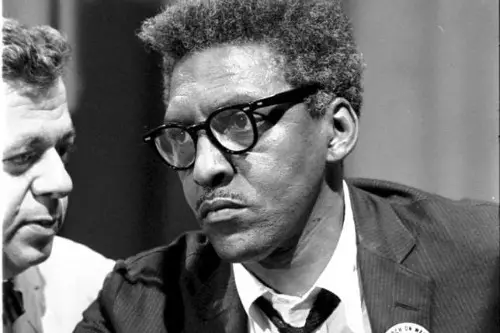
Bayard Rustin’s contributions to the Civil Rights Movement were vital, yet he is often overshadowed by more well-known figures. Rustin was a brilliant strategist and organizer who played a pivotal role in organizing the historic 1963 March on Washington for Jobs and Freedom. His ability to unite diverse groups under one cause was crucial to the success of the march, which drew over 250,000 people. Despite his instrumental role in one of the most significant events in the history of the Civil Rights Movement, Rustin faced challenges due to his sexuality. As an openly gay man, he was often marginalized within the movement, and his contributions were downplayed or ignored. Nevertheless, he remained committed to the cause, dedicating his life to advocating for racial justice, nonviolent protest, and equality for all.
In addition to his work with the March on Washington, Rustin was an outspoken advocate for peace and social justice throughout his life. He was involved in various movements for labor rights, anti-war efforts, and global human rights initiatives. His dedication to nonviolence, influenced by his mentorship with Mahatma Gandhi, shaped the direction of the Civil Rights Movement and continues to inspire activists today. A holiday in his honor would serve not only to recognize his crucial role in the movement but also to celebrate the intersectionality of social justice work. Rustin’s legacy reminds us that social progress requires an inclusive approach, embracing the diverse identities that contribute to meaningful change.
9. John Lewis
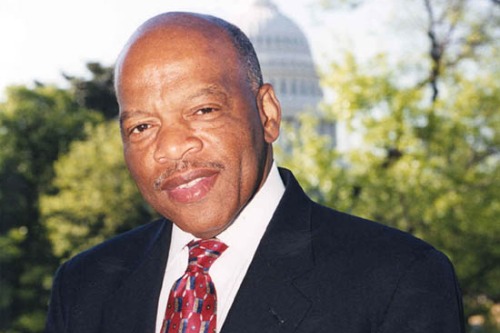
John Lewis is widely known for his role as a Congressman, but his legacy as a courageous young activist during the Civil Rights Movement is equally significant. As a leader of the Student Nonviolent Coordinating Committee (SNCC), Lewis played a critical role in organizing the Freedom Rides, which challenged segregated bus systems in the South. He faced violent opposition, enduring beatings and arrest, yet he remained steadfast in his commitment to nonviolence and justice. Lewis was also one of the key figures in the 1965 Selma to Montgomery march, where he was severely beaten by state troopers in a brutal attack that became known as “Bloody Sunday.” Despite the physical and emotional scars he carried, Lewis never wavered in his dedication to the cause, serving as an inspiration to generations of activists.
In Congress, Lewis continued his advocacy for civil rights, voting rights, and social justice, becoming a powerful voice for the marginalized. He was a tireless champion of voting rights, particularly in the fight to restore the Voting Rights Act, which had been gutted by the Supreme Court. His unwavering commitment to justice and equality for all people makes him a towering figure in American history. A national holiday honoring John Lewis would be a fitting tribute to his sacrifices and lifelong dedication to fighting for civil rights, ensuring that his vision of a more just and equitable society continues to inspire future generations.
10. Grace Hopper
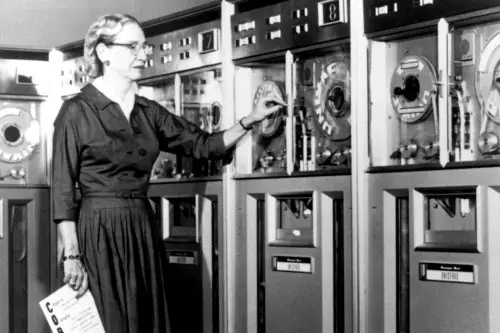
Grace Hopper was a groundbreaking computer scientist and naval officer who is often credited with revolutionizing the field of computer programming. Hopper’s contributions to the development of the first computer programming language laid the foundation for modern computing, and she is particularly known for her work on the COBOL programming language, which is still used in many industries today. Despite the obstacles she faced as a woman in a male-dominated field, Hopper’s intellect and persistence led to groundbreaking achievements that have had lasting impacts on technology and society. Her work helped make computers more accessible and usable, and her vision for the future of computing changed the way people thought about technology.
Hopper’s legacy is not just one of technical innovation but also of leadership and mentorship. She inspired countless young women to pursue careers in science, technology, engineering, and mathematics (STEM) fields. In addition to her technical accomplishments, she was a trailblazer for women in the military, serving as a rear admiral in the U.S. Navy, one of the highest ranks ever achieved by a woman at the time. A national holiday dedicated to Grace Hopper would celebrate her pioneering work in computer science and her advocacy for women in STEM, ensuring that her influence on the digital world is remembered and honored.
11. Jack Roosevelt Robinson
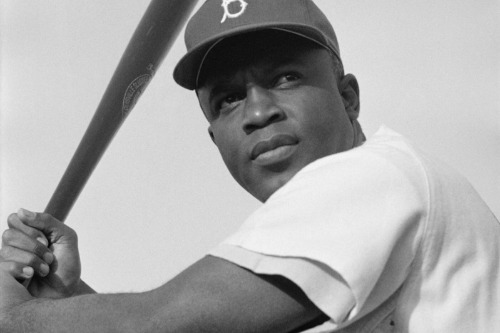
Jackie Robinson’s breaking of the color barrier in Major League Baseball in 1947 is celebrated around the world. However, his legacy extends far beyond his athletic achievements. Robinson faced unimaginable hostility, both on and off the field, as he became the first African American to play in the Major Leagues. He endured racist taunts and threats from fans, opponents, and even his own teammates, yet he remained focused on his mission to prove that African Americans could succeed at the highest levels of professional sports. His courage and resilience in the face of such adversity paved the way for future generations of African American athletes.
In addition to his work on the baseball field, Robinson was an outspoken advocate for civil rights and social justice. He used his platform to speak out against racial segregation, advocating for equal rights for African Americans in all areas of life. He was also a vocal critic of U.S. military policies during his time in the armed forces, standing against segregation within the ranks. Jackie Robinson’s work as a civil rights activist deserves as much recognition as his baseball achievements. A national holiday in his honor would not only celebrate his groundbreaking sports career but also his tireless efforts to advance racial equality and social justice.
12. Sylvia Rivera
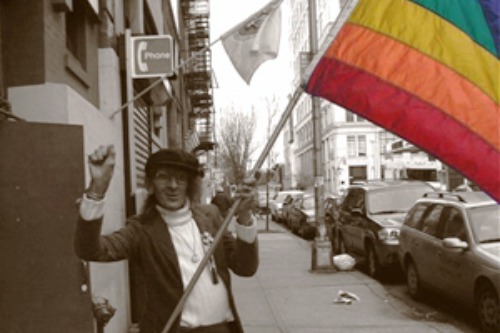
Sylvia Rivera was a courageous advocate for LGBTQ+ rights, particularly the rights of transgender individuals, during a time when their voices were often ignored or silenced. A Latina-American activist, Rivera played a key role in the Stonewall Uprising of 1969, which marked the beginning of the modern LGBTQ+ rights movement. However, Rivera’s contributions extended far beyond Stonewall. She was a founding member of the Gay Liberation Front and later co-founded the Gay Activists Alliance. Throughout her life, Rivera fought for the inclusion of transgender and gender-nonconforming individuals in the broader LGBTQ+ rights movement, tirelessly advocating for the rights of those often overlooked.
Rivera faced harsh criticism from other LGBTQ+ activists, but she remained steadfast in her mission to uplift the voices of marginalized groups. Her advocacy for trans rights and her call for an intersectional approach to LGBTQ+ issues were ahead of their time. Sylvia Rivera’s courage and unwavering dedication to fighting for the rights of all LGBTQ+ individuals, especially transgender people of color, make her a hero worth remembering. A national holiday honoring Rivera would help raise awareness of the often-overlooked struggles of transgender people and acknowledge her vital role in the LGBTQ+ rights movement.
13. Leonard Peltier
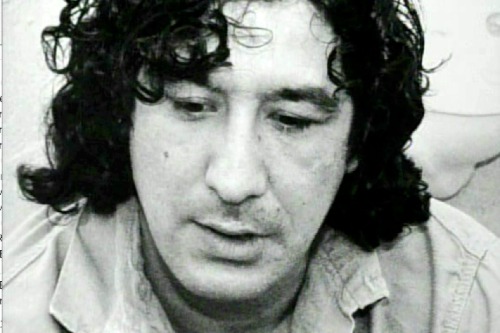
Leonard Peltier’s story is one of injustice, resilience, and a tireless fight for the rights of Native Americans. A member of the American Indian Movement (AIM), Peltier was wrongfully convicted for the 1975 deaths of two FBI agents during a confrontation at the Pine Ridge Reservation in South Dakota. Despite numerous inconsistencies in the case and claims of a flawed trial, Peltier was sentenced to two life terms in prison. His case has since become a symbol of the mistreatment of Native Americans by the U.S. government, drawing widespread attention and support from human rights organizations around the world. Peltier’s legal battles continue to this day, as he fights for justice and the fair treatment of Native American communities.
While Peltier’s case remains controversial, his advocacy for the rights of Native Americans and his enduring fight for justice cannot be overlooked. Throughout his years of imprisonment, he has remained a vocal advocate for Native American sovereignty, environmental justice, and human rights. A national holiday dedicated to Leonard Peltier would honor his efforts to bring attention to the struggles faced by Native American communities and would serve as a reminder of the need for greater justice and equality for Indigenous peoples in America. Peltier’s enduring commitment to fighting for the rights of Native Americans deserves to be remembered and celebrated.
These forgotten heroes contributed immeasurably to American society. They each left a unique and lasting impact, whether through their acts of courage, innovation, or activism, and they deserve the recognition of a national holiday.


